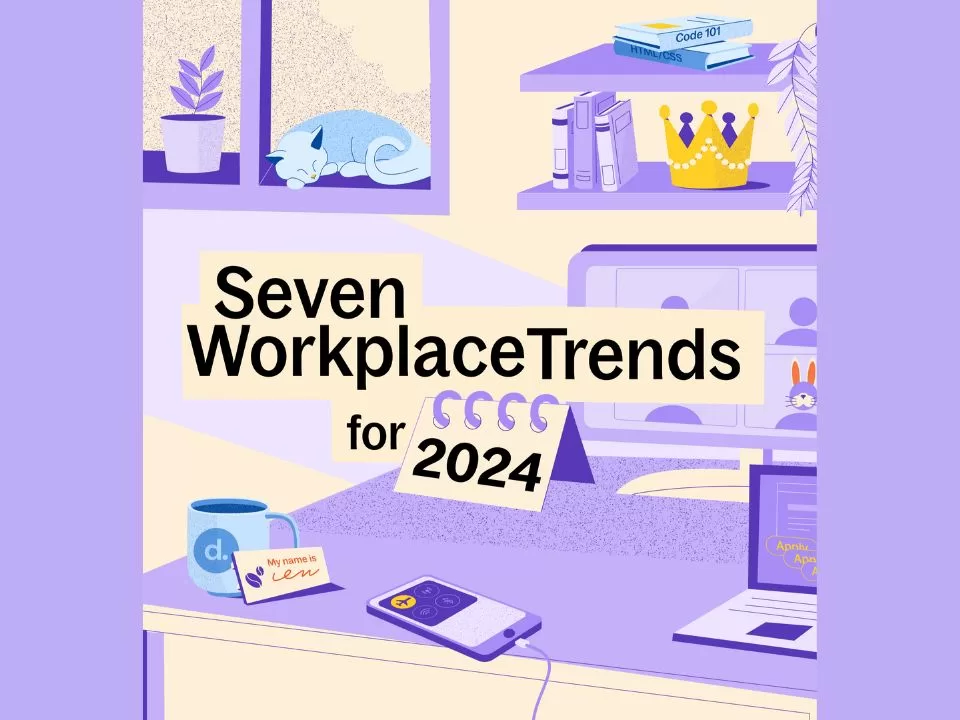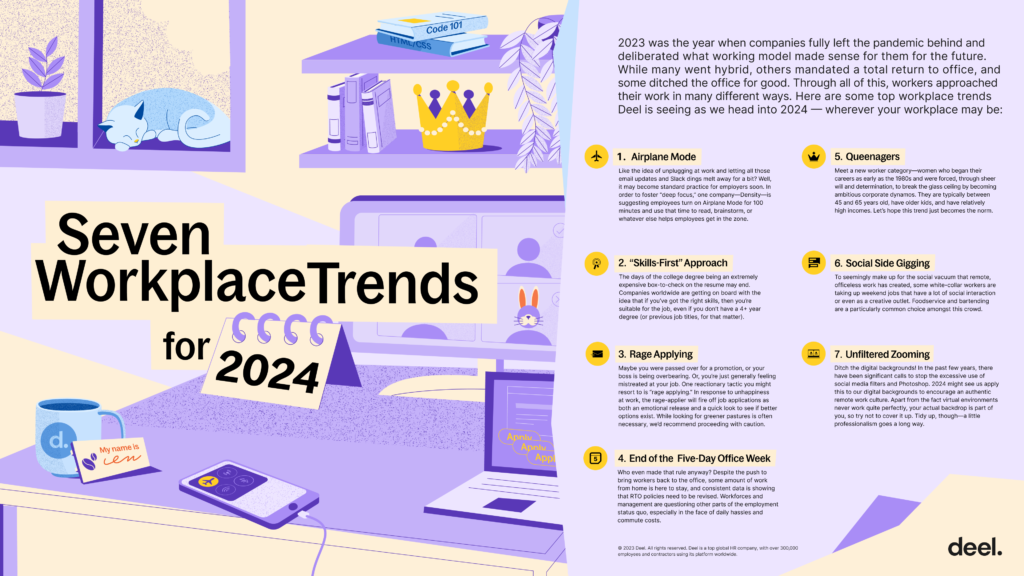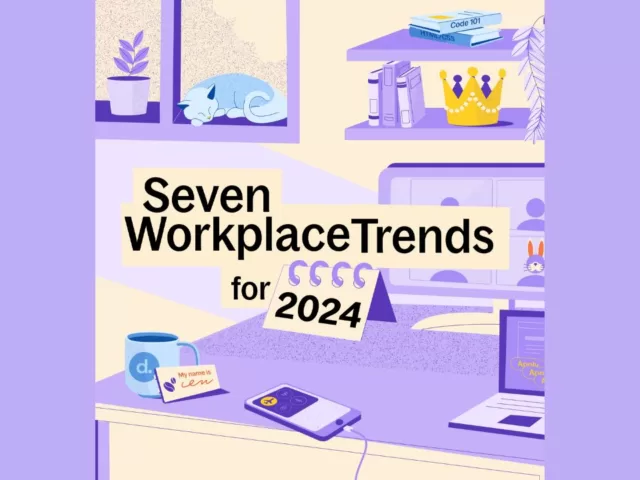
In 2023, businesses definitively moved beyond the pandemic, contemplating future working models. While some embraced hybrid setups, others insisted on a complete return to the office, and a few opted for a permanent remote approach. Amidst these changes, employees adopted diverse approaches to their work.
7 Workplace Trends For 2024

As we enter 2024, Deel highlights key workplace trends, regardless of the workplace setting according to Karen Ng, Regional Head of Expansion, Asia, Deel.
1. Airplane Mode
Envision the concept of disconnecting during work, allowing email notifications and Slack alerts to temporarily fade away. This could soon become a common practice for employers. To promote “deep focus,” Density, a company proposes that employees activate Airplane Mode for 100 minutes, utilizing that period for activities like reading, brainstorming, or any other tasks that help them achieve a heightened state of concentration.
2. “Skills-First” Approach
The era of a college degree being a costly checkbox on a resume could be fading. Global companies are increasingly embracing the notion that possessing the necessary skills qualifies individuals for a job, regardless of whether they hold a traditional four-year degree or have specific previous job titles.
3. The Five-Day Office Week Is Dead
Who established that guideline, anyway? Despite the effort to return employees to the office, a certain level of remote work is becoming permanent. Substantial data indicates the need for a reassessment of Return to Office (RTO) policies. Both employees and management are reevaluating various aspects of the traditional employment structure, particularly in light of daily inconveniences and commuting expenses.
4. Rage Applying
Perhaps you missed out on a promotion, your supervisor is becoming excessively demanding, or you’re experiencing a sense of mistreatment in your current job. In reaction to workplace dissatisfaction, some individuals resort to a tactic known as “rage applying.” This involves submitting job applications as a way to release emotions and quickly explore potential better opportunities. While seeking better career prospects is understandable, we advise approaching this with caution.
5. Queenagers
Introducing a novel demographic of professionals—women who initiated their careers as early as the 1980s, overcoming obstacles with unwavering determination to shatter the glass ceiling and emerge as ambitious corporate leaders. Typically aged between 45 and 65, these individuals often have older children and enjoy relatively high incomes. May this trend evolve into the standard expectation.
6. Unfiltered Zooming
Say goodbye to digital backgrounds! Recent years have witnessed strong appeals to reduce the overuse of social media filters and Photoshop. In 2024, we might extend this sentiment to our digital backgrounds, aiming to foster an authentic remote work culture. Since virtual settings aren’t flawless, embrace your real backdrop as it reflects a part of who you are—avoid the cover-up. However, ensure it’s tidy; a touch of professionalism can make a significant impact.
7. Social Side Gigging
In an attempt to fill the social void caused by remote work without a physical office, certain white-collar professionals are engaging in weekend jobs that offer substantial social interaction or serve as creative outlets. Many in this group gravitate towards roles in the foodservice and bartending sectors.
In conclusion, the evolving landscape of work in 2024 is marked by a departure from traditional norms. From a shift in the significance of a college degree to the demise of the conventional five-day office week, the workplace is undergoing significant transformations.
With a growing recognition of the value of skills over formal education and the persistence of remote work, employees and employers alike are reevaluating established paradigms. As individuals navigate these changes, it is essential to approach career decisions, workspace adjustments, and professional development with a balanced perspective, embracing both innovation and caution.










